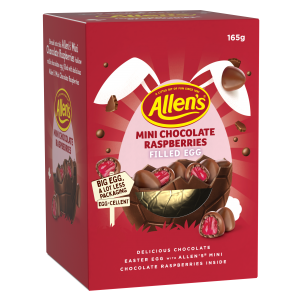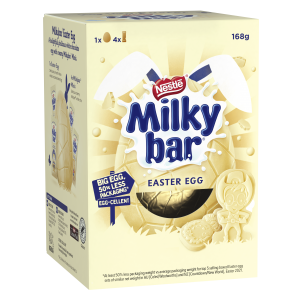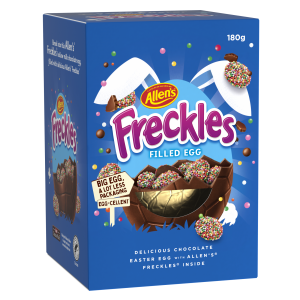Nestlé has launched a new Easter range packed without hard plastics. It also boasts a claimed 50% less packaging weight compared to the average weight of the five top-selling boxed Easter eggs. 
The new range, says Nestlé, eliminates the need for the traditional, rigid plastic used in many Easter egg boxes. Instead, it is all packed in a 100% recyclable box.
“Of the total weight – Easter goodies plus packaging, Nestlé packaging is clocking around just 19% of its Easter boxes, compared to around 41% packaging weight for the five top-selling boxed Easter eggs of similar net weight in Australia – meaning Aussies are getting a lot less packaging with their boxed gifting eggs,” says the company.
Backed by research
New research by Nestlé reveals that 90% of Australian respondents notice the amount of food packaging. 54% are looking for less packaging this Easter.
Despite this, just 5% of respondents are considering the amount of packaging waste as a important factor when purchasing Easter eggs.
Does size matter?
While nearly half of respondents (49%) are drawn to the biggest Easter egg box, Nestlé says a careful look at the shelves shows that bigger packaging doesn’t necessarily mean a bigger sized egg. 
“On special occasions like Easter, many Australians continue to be attracted to bigger packaging – either consciously or unconsciously,” says sustainability expert and Research Fellow at Monash Sustainable Development Institute Jenni Downes.
“The work by Nestlé in taking such a ‘counter-cultural’ step in the absence of an industry wide commitment to do the same is both a brave and needed move. It’s exciting to see such a holistic approach taken by a private business, on the strength of its own sustainability commitments.”
Adding to the conversation, Nestlé Director of Sustainability Margaret Stuart says: “We want to break the mould that says a bigger pack means a bigger egg. Using less packaging meant carefully considering every detail so we could deliver our Easter eggs in a fully recyclable box. 
“Across Nestlé, we are working to make all or packaging recyclable or reusable and reduce our virgin plastic use by a third by 2025, so getting the details right is critical. We need to be innovative. Easter, which sees a significant increase in chocolate gifting purchases, is a key time to shake up the category and start a conversation around packaging.”
Availability
The new range includes “favourites” such as KitKat, Milkybar, Allen’s Retro Party Mix, Allen’s Freckles and Allen’s Mini Chocolate Raspberries.
They are now available at supermarkets with a RRP of $10.




